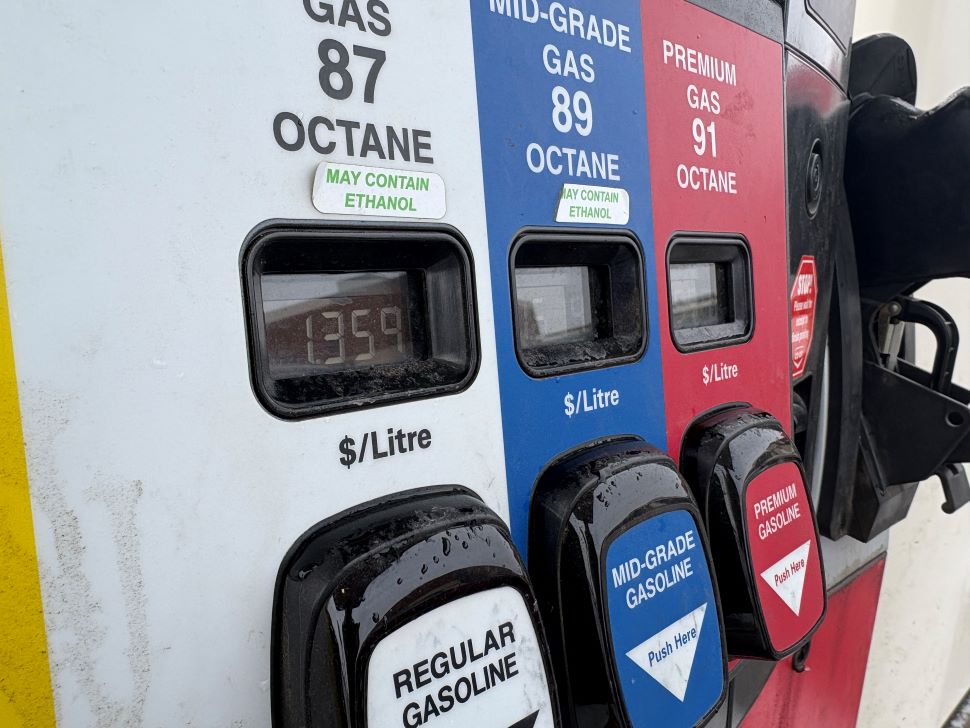Yesterday marked the beginning of the consumer carbon tax pause nationwide, and while the immediate drop in gas prices has already taken place, it is not yet known where they will settle in the coming days and weeks.
GasBuddy Senior Petroleum Analyst Patrick De Haan said that while the break for consumers at the pump is a welcome change, there is still no small amount of uncertainty ahead.
“I think now the biggest question is now that this carbon tax pause has hit bumps with prices declining, will it be made permanent once we see the results of the elections and will Parliament work to permanently remove the carbon tax?”
“Now that motorists are seeing the significant portions of the savings, it absolutely would be substantial if something down the road reverses the savings that we're seeing.”
De Haan mentioned that he thinks Canadians will be unlikely to want a return to the status quo, especially having had a reminder of what deregulation can do to prices.
While the trend is largely positive for consumes and their wallets, he notes that there are a number of factors still at play that can have a significant impact on what Canadians are paying at the pumps, including the recent three per cent jump in the price of oil at the beginning of the week, and the continued economic dispute with the United States.
“Will the United States move ahead with broad tariffs on Canada and other trading partners? That could hold significant consequences for the Canadian economy as well. That's another big question,” De Haan noted.
De Haan says that if the US does move ahead with tariffs on Canadian products, the interconnected nature of trade between the two nations is liable to lead to economic slowdown, and subsequently, further impact on fuel prices.
“That’s going to be another thing to watch. As goes the Canadian and American economies, so go gas prices, if the Trump administration moves ahead with aggressive tariffs on Canada, it will likely backfire and could lead to an economic perception which could lead to even lower prices.”
The ongoing uncertainty regarding trade with the United States has already created a shift in Canadian energy policy, with the oil and gas sector looking to branch into other markets.
“Those conversations have already begun. Mark Carney is talking about an energy corridor now. That locomotive is gaining steam and there's no slowing it down. Canadians are looking well beyond selling to the United States, but those pipelines take years to build,” De Haan explained.
“I think the intent is there, at least for now, unless the United States does a massive about face which seems next to impossible now with the tone, I think that is that is almost a guarantee that Canada will likely start to look more at what it can do itself to secure its energy futures.”
He said that Canada has no choice but to expand pipeline infrastructure, which in the case of the Trans-Mountain pipeline – which currently supplies a relatively small amounts of Canadian oil to other markets like China – is currently limited by the overall capacity of that line.
The potential is there for new pipelines, but the time needed to bring Canadian oil and gas to new markets would require all new infrastructure to the west or east coasts to be built and brought online quickly.
“Ironically enough, if President Trump were to approve the Keystone XL pipeline, that would essentially grant Canada the ability to send forth more crude oil down into areas like Oklahoma and Texas, where it could be more easily exported as well,” De Haan mentioned.
He said that had Canada moved more expeditiously with the approval and building its own pipelines instead of relying on the United States as an end consumer of its oil and gas the nation would find itself in a vastly different situation.
